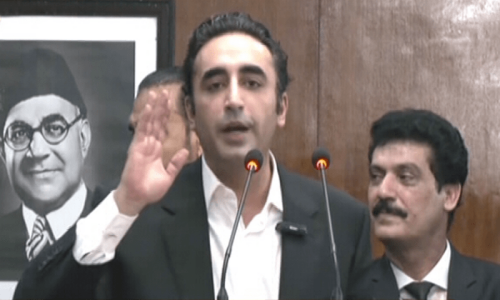THE kidnapping was a worrying enough sign. The victims were two Chinese nationals and the scene of the crime was a supposedly secure zone inside Quetta. Now, with both Chinese and Pakistani officials saying the two nationals could have been killed and the militant Islamic State group claiming responsibility, a decidedly more serious problem has revealed itself. Earlier in the week, the ISPR had claimed a major success against a Lashkar-i-Jhangvi and IS nexus of militancy in a remote warren of caves in Mastung district, suggesting that local militancy continues to evolve and that the IS is far from the marginal threat some sections of the state have tried to cast it as. It is not known if the Mastung raids and the Quetta kidnapping are linked, but what is clear are two things: Balochistan’s security troubles remain complex with seemingly no end in sight, and Pakistan remains an IS target. Before a strategy can be evolved to address both issues, there must be a frank acknowledgement of the realities.
Balochistan is an integral part of CPEC and there is no future imaginable in which the province is not rapidly opened up to Chinese and domestic investments and infrastructure projects. But the surge in economic activity was always likely to attract threats in a province that has myriad security challenges and therefore demands an approach that goes beyond further militarisation. The low-level Baloch separatist insurgency is more than a decade old; neighbouring Afghan and Iranian regions continue to pose security problems; Balochistan has seen the rise of sectarian and Islamist militancy; and now, with the expansion of the Chinese footprint in the province, pre-existing threats could fuse with new strands of militancy to create an unprecedented threat. There is no realistic scenario in which Pakistan can wage a full-scale war against all those threats at the same time in the same province. In the convergence of the IS and the anti-China threat, there is an opportunity for the state to craft a fresh strategy that politically stabilises Balochistan in order to focus on a militant danger that is spreading to other parts of the country. There must be no space for the IS in Pakistan. The current approach has failed to prevent the group from gaining space; institutional differences must be put aside for the sake of a joint and effective strategy to defeat it.
Published in Dawn, June 11th, 2017









































